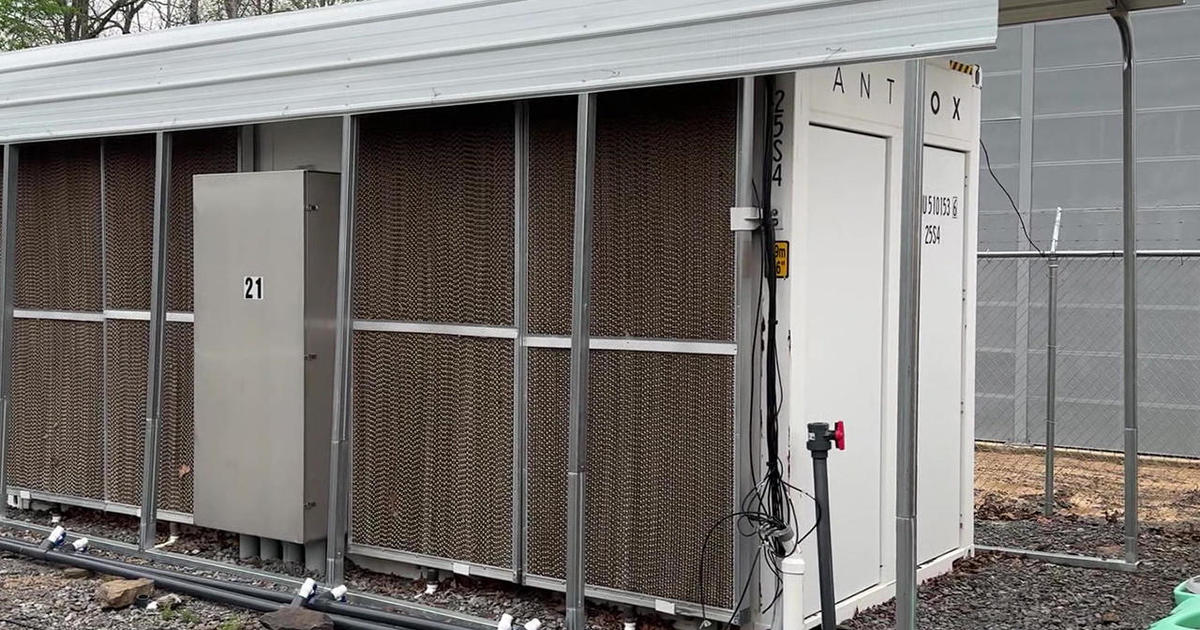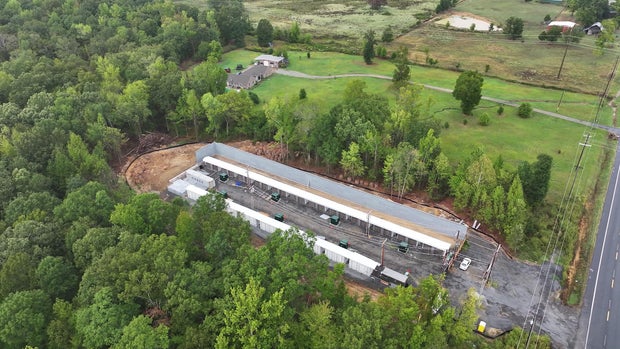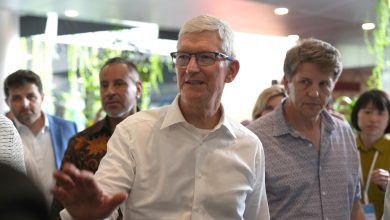
Seven years ago, Gladys Anderson purchased her dream home in Bono, Arkansas. “We moved here to escape the hustle and bustle of the city and the noise,” she said. “Just peace and quiet, country life.”
But last May, the calm ended, when the noise began. “It was like torture, like a military-level form of torture,” she said.
It’s the sound of 17,000 computer fans at a Bitcoin facility next door.
Neighbor Shane Markuson frequently takes decibel readings. “Eighty-two was the highest number,” he said. (Note, a hairdryer is 90 decibels.)
“It has caused me problems with my hearing, my blood pressure and with my sweetheart, who has migraines,” Markuson said.
The residents can’t even move away. “I don’t know who would want to buy my house or my place,” Markuson said. “You know, with that kind of noise, does You Do you want to live next door?”
Anderson said she contacted authorities about the noise: “I’ve talked to the county judge’s office, the county administrator, I’ve called the governor’s office several times. And I know that hundreds of other people called about it.”
When asked why she thought nothing had been done, Anderson replied: “Money. It’s money.”
CBS News
And that East money, especially cryptocurrency.
Bitcoin is a digital currency without a centralized bank. Instead, transactions are confirmed by huge banks of computers, managed by people called miners. To incentivize them to set up these facilities, the system periodically rewards miners with freshly minted bitcoins worth hundreds of thousands of dollars.
But all of these computers consume enormous amounts of power and make a lot of noise.
Last year, Arkansas passed what is now known as the “right to mine” bill. He stop local communities to regulate these operations.
Republican Senator Joshua Bryant was the bill’s lead sponsor. “We have a business-friendly state,” he said. “We have cheap land. We have affordable electricity. And that’s the perfect combination to be a cheap date for this industry.”
Bryant believed bitcoin mining would be good for the state, but there would be unintended consequences. “What we found was that the operators began to operate in a way that did not allow neighbors to enjoy quietly.” He points out that not all Bitcoin factories are noisy.
Arkansas Bitcoin Miner Ben Smith Says Mining Plants can be very quiet – water cooled instead of fans, built away from residential areas and completely enclosed rather than open air. “I would say about half of the sites in Arkansas are owned by bad actors per se,” Smith said. “It’s all about design and, honestly, how much money you’re going to invest to be a good neighbor or a good actor.”
So who builds all these cheap and noisy factories? Senator Bryant says it is a network of Chinese companies with ties all the way to the Chinese government. The New York Times reports that Chinese Bitcoin mines are now operating in at least 14 states.
But the Chinese government is not the only invisible hand. The “right to mine” bill itself was drafted by a bitcoin advocacy group, the Satoshi Action Fund, which is proposing similar bills in at least 12 other states.
In Arkansas, at least 50 bitcoin mining plants are planned, and even Senator Bryant admits his bill needs fixing. “We’re looking at a state law that you know will ultimately require that these crypto operations not generate noise,” he said.
Meanwhile, Gladys Anderson and her neighbors filed a complaint. “We set up a GoFundMe; we had raffles,” she said. “We recently sold smoked pork butts.”
Lawyers for the Bono plant say the volume is within local limits and said in a statement to “CBS Sunday Morning” that “our client is currently developing design plans to completely enclose the site…within a few month “.
Well, that’s good, because Gladys Anderson isn’t going to give up: “I’m a very stubborn and very contemptuous woman,” she said. “I’m going to become just as big a headache for them as they move in everywhere.”
For more information:
Story produced by Amol Mhatre. Editor: Mike Levine.
See also:
Grub5







